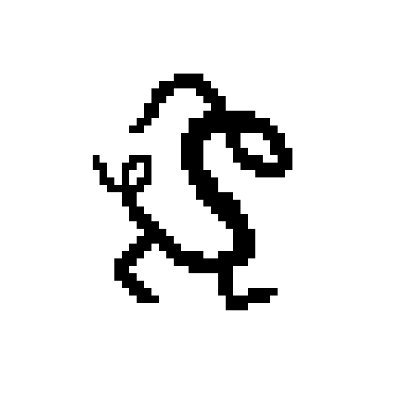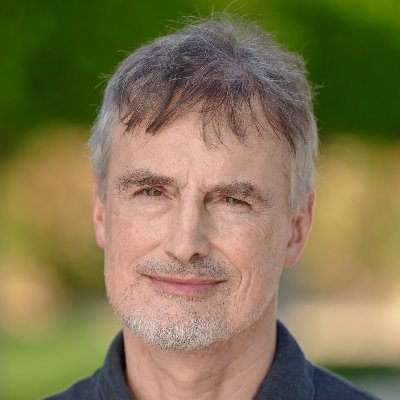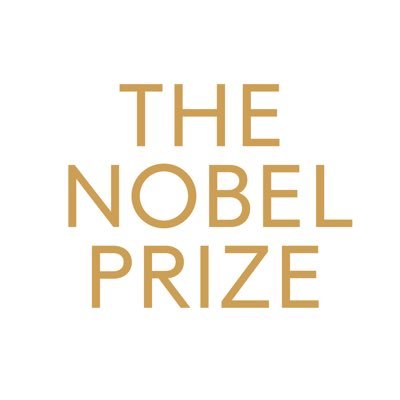
ConstantinRothkopf
@c_rothkopf
Followers
725
Following
303
Media
42
Statuses
262
Computational cognitive scientist. Perception and action are inseparably intertwined. Prof @TUDarmstadt Director @CentreForCogSci Member @Hessian_AI @ELLISforEu
Joined June 2019
Join our world-class Cluster of Excellence on Reasonable AI as a PhD student in one of the four labs. More info, particularly on the Challenging AI with Cognitive Science Lab (CAI) & application👉
hessian.ai
The Cluster of Excellence Reasonable Artificial Intelligence (RAI) invites applications for several fully funded PhD positions starting in early 2026. RAI conducts cutting-edge research on AI systems...
0
0
1
If neuroscience needs behavior, then it also needs control theory ... but that's not the only reason: check out the Control theory approaches for analysing, modeling, and manipulating brain activity and cognitive function workshop at #BernsteinConference
https://t.co/Hl5e5zyGYU
bernstein-network.de
0
0
1
Looking forward to meeting you at #ECVP2025 Mainz this week. Check out https://t.co/tcIDQFi94j for more details ...
0
0
4
Our latest work on understanding the behavior of bounded agents in more naturalistic tasks with inverse modeling: Revisiting Cost Functions in Sensorimotor Decision-Making with Tobias Niehues & Dominik Straub #CCN2025 more at https://t.co/kb50agU0rW
0
2
15
Join us at #CogSci2025 where @featherinair is presenting our poster P3-T-192 with @eckstein_maria and Dominik Ürüm
0
0
3
We have an open PhD position in an exciting DFG-AEI project to further develop continuous psychophysics in collaboration with Joan-Lopez Moliner. More info: https://t.co/XXagwuPYL7
linkedin.com
We have a fully funded open PhD position in the lab of Constantin Rothkopf (https://lnkd.in/e_7zk8PV) at the Centre for Cognitive Science at Technische Universität Darmstadt in a joint DFG-AEI...
0
14
24
Excited to share that our paper got accepted at #ICML2025!! 🎉 We challenge Vision-Language Models like OpenAI’s o1 with Bongard problems, classic visual reasoning challenges and uncover surprising shortcomings. Check out the paper: https://t.co/DEzmIEGMWj & read more below 👇
arxiv.org
Recently, newly developed Vision-Language Models (VLMs), such as OpenAI's o1, have emerged, seemingly demonstrating advanced reasoning capabilities across text and image modalities. However, the...
📢 Update: We've deepened our exploration of VLMs on Bongard Problems with more rigorous evaluations! The best-performing model (o1) we tested solved 43 out of 100 problems - progress, but still plenty of room for improvement!
2
5
17
Very excited to be part of the @SimonsFdn collaboration on ecological neuroscience! More at
We are so excited to announce our new Simons Collaboration on Ecological Neuroscience (SCENE)! This 10-year program will unite experts in experimental and computational #neuroscience approaches to investigate how the brain represents sensorimotor interactions.
0
0
0
Congratulations to Matthias Schultheis for defending his PhD thesis 'Inverse reinforcement learning for human decision-making under uncertainty' with distinction, understanding bounded actors with inverse models: more at https://t.co/Nw7TR3xSQ7
0
0
1
More at
I am pleased to announce the next talk in the Bonn Melbourne Seminar in Decision Making and Computational Psychiatry: "Eye Movements As Sequential Decision-making Under Uncertainty" by @c_rothkopf. DM to join! #DecisionMaking #EyeMovements #TheEyesHaveIt
0
0
0
Congratulations to Dominik Straub for defending his PhD thesis 'Inverse normative modeling of continuous perception and action' with distinction, understanding bounded actors with inverse models: more at https://t.co/tgvNIVoRMk
0
0
1
Our latest work on understanding the behavior of bounded agents in more naturalistic tasks with inverse modeling accepted at @iclr_conf: Inverse decision-making using neural amortized Bayesian actors; more at
0
0
2
I didn't realize that @GaryMarcus coined the term "deep learning is hitting a wall" (in his March 2022 Nautilus essay). It became such a part of the lexicon I thought it was older. I should have cited him directly in the post. https://t.co/U7BH9jQBNW
nautil.us
What would it take for artificial intelligence to make real progress?
Ilya Sutskever, perhaps the most influential proponent of the AI "scaling hypothesis," just told Reuters that scaling has plateaued. This is a big deal! This comes on the heels of a big report that OpenAI's in-development Orion model had disappointing results. 🧵
3
3
26
Aktuelle #KI-Modelle bestehen nicht KI-Benchmarks aus den 1960iger Jahren 😤 Tolle Zusammenarbeit mit @toniwuest @philosotim @lukas_helff @devendratweetin @c_rothkopf
https://t.co/nddarhIyuc
heise.de
Auch die größten Vision-Language-Models von OpenAI, Google und Meta können laut einer Studie ganz simple Aufgaben nicht lösen.
0
7
18
Benchmark problems from the 1960ies ... work with @toniwuest @philosotim @lukas_helff @devendratweetin @kerstingAIML
Our recent workshop paper puts Vision-Language Models like #GPT4o to the test with Bongard problems🧩 We show that VLMs struggle to identify concepts that are quite intuitive to humans. Still a long way to go for human-like visual reasoning! 🤖🧠 arXiv: https://t.co/JKdAXvJwfA
1
0
11
VLMs fail on #Bongard problems, a cognitive puzzle requiring abstract reasoning, limited data handling & contextual rules! #NeurIPS 2024 "System-2 Reasoning at Scale" Workshop PDF 👉 https://t.co/IMI4Id92vo A comparison to humans (soon on arXiv) shows a big gap
1
13
50
Well worth the read: "One of the two AI Nobels is not like the other. Hinton’s seems puzzling. Demis Hassabis’s is a slam dunk." ~ @garymarcus
https://t.co/1ADKaielxP
0
0
0
The #NobelPrizeinPhysics2024 for Hopfield & Hinton rewards plagiarism and incorrect attribution in computer science. It's mostly about Amari's "Hopfield network" and the "Boltzmann Machine." 1. The Lenz-Ising recurrent architecture with neuron-like elements was published in
people.idsia.ch
Whose Creators They Failed to Credit
210
1K
5K
Despite the controversy about today's #NobelPrize, this is a prize for interdisciplinarity: John Hopfield works in systems biology and neuroscience and Geoff Hinton is as much a computer scientist as he is a cognitive scientist and psychologist- and now even a physicist.
BREAKING NEWS The Royal Swedish Academy of Sciences has decided to award the 2024 #NobelPrize in Physics to John J. Hopfield and Geoffrey E. Hinton “for foundational discoveries and inventions that enable machine learning with artificial neural networks.”
0
0
7














